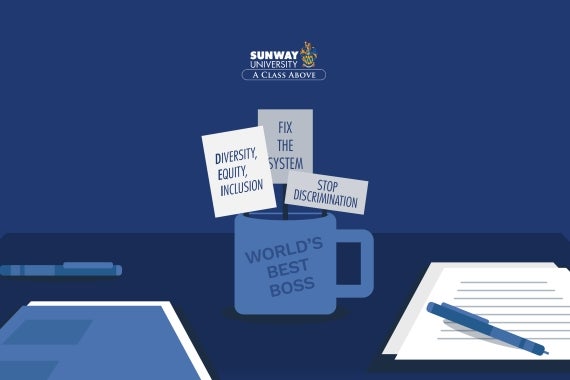How to Choose Your Career Path: A Guide to Unlocking Your Potential

Many people struggle with choosing a career they're passionate about, that allows them to make a difference in the world.
For some, it may feel like an overwhelming task. But with the right tools and insights, you can identify your unique strengths, passions, and goals. This can empower you to make informed choices that align with your true potential.
What is a Career Path?
Choosing the right career path is crucial and can significantly impact your life. But what is a career path, exactly?
A career path is a series of professional roles and experiences that lead to the achievement of your long-term goals. When it comes to career paths, there are two main directions one can take: vertical or horizontal.
Vertical career path
This involves moving up or down in an organisation, depending on your goals and preferences.
For example, some people may strive for higher-level positions, which have more managerial responsibility and time commitments, after accumulating experience and expertise, while others may want to stay in a lower-level role with fewer demands, preferring instead to focus on being an expert at the executional level.
Horizontal career path
On the other hand, horizontal career paths involve a lateral movement within an organisation or industry, or even across multiple industries.
This career path is ideal for those looking to broaden their skill set and gain diverse experiences. By taking on different roles and responsibilities, you can expand your knowledge and expertise across disciplines, ultimately becoming a more valuable asset in the workplace.
Once you have understood these different types of career paths, you can then take steps towards making a decision that best fits your goals.

Step 1: Assess Your Interests and Skills
Your interests are the activities and subjects you enjoy and are passionate about. Your skills, meanwhile, are the abilities and talents you possess, which can be divided into hard skills – technical knowledge or training that you have gained – and soft skills, which include critical thinking and communication skills.
Considering both your strengths and weaknesses is essential in this process. Reflect on what kind of education or training you have received and how it has shaped your abilities. Additionally, consider your personality type, as it can influence your preferences and aptitudes in the workplace.
Once you know what works for you, you can look for and recognise work that satisfies your preferences. For example, introverted individuals may prefer careers that involve more independent work, while extroverted individuals may thrive better in team-oriented environments.
To assess your interests and skills, you can:
- Spend time reflecting on your passions, hobbies, and past experiences
- Take online assessments like the Myers-Briggs Type Indicator (MBTI) or the Strong Interest Inventory
- Consult with family members, friends, or mentors who know you well and can provide honest insights into your strengths and weaknesses

Step 2: Consider Your Needs and Career Goals
After assessing your interests and skills, you should consider your personal needs and career goals. Your personal needs may include financial stability, work-life balance, job security, or opportunities for career development. Career goals, on the other hand, are the short-term and long-term objectives you want to achieve particularly in your professional life.
To determine your personal needs and career goals, ask yourself the following questions:
“What kind of lifestyle do I want to have?”
Consider factors such as income, work hours, and location.
“What are my long-term goals?”
These may include attaining a specific job title, starting your own business, or making a meaningful impact in your field.
“What are my short-term goals?”
These may include gaining specific skills, completing training programmes, or networking with professionals in your desired industry.
The answers to these questions can help you in shaping your career decisions.

Step 3: Explore Your Career Options
Once you clearly understand your interests, skills, needs, and goals, it is time to explore various career options. Research different industries and job roles to identify potential career paths that align with your preferences and objectives. You can:
- Conduct informational interviews with professionals in your desired field to gain insights into their experiences and advice
- Attend career fairs, workshops, or networking events to learn about different industries and job opportunities
- Utilise online resources, such as the Employment Statistics from the Ministry of Economy, to research the latest labour demand and outlook. Check job descriptions, educational requirements, and salary information online

Step 4: Develop Your Career Plan
After exploring different career options, you can develop a career plan that outlines the steps you need to take to achieve your goals. This career plan is your strategic roadmap to guide your professional development so you stay focused on your objectives. Your career plan should include the following:
- A list of your short-term and long-term goals
- A timeline for achieving these goals
- Specific action steps, including completing training programmes, gaining relevant work experience, or networking with professionals in your desired field
Part of this plan should be equipping yourself with the knowledge and skills to support your forward momentum. At Sunway University Online, we are dedicated to helping you achieve this objective.
Sunway University Online offers fully online master’s programmes with a highly flexible structure, industry-relevant subjects, and a quality education experience delivered by committed lecturers and industry experts – all with the aim of getting you to where you want to be in both your personal and professional life.
Discover our master’s offerings here to find out which programme fits your needs, or discuss your academic and professional goals with our Education Counsellors if you need help deciding your best next step.
Choosing the right career path requires careful consideration. By following the steps outlined in this article, you can make an informed choice and embark on a fulfilling career journey. All the best!





